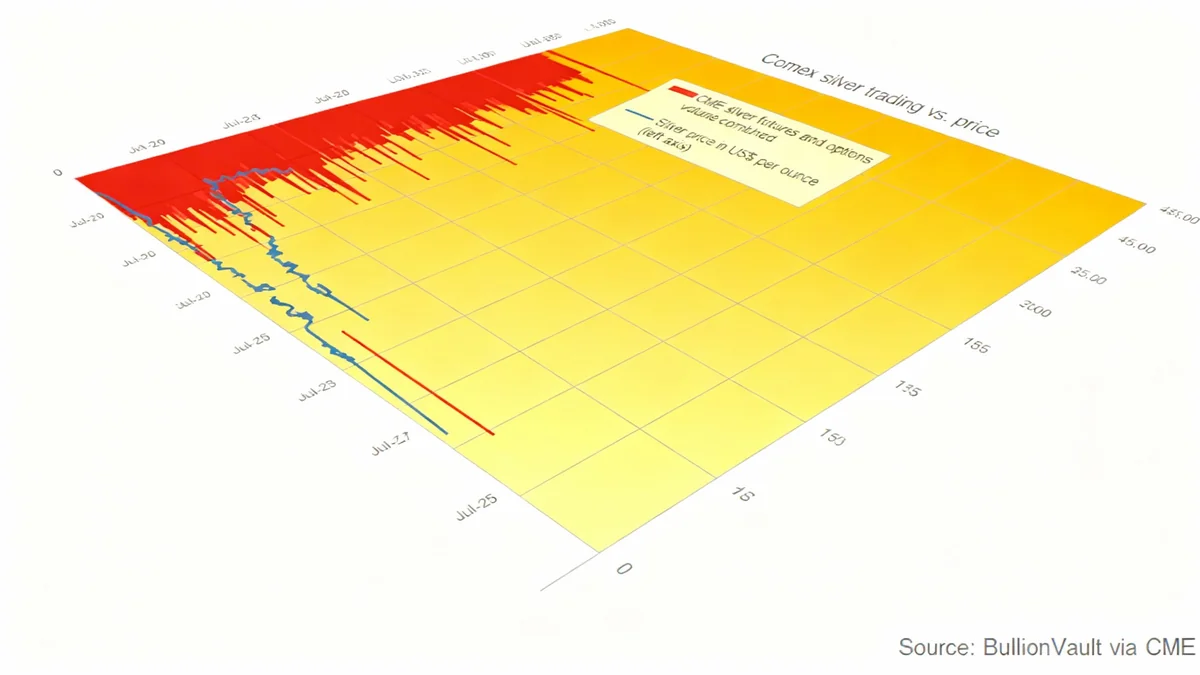Shares of United Overseas Bank Ltd. (UOB) experienced a significant downturn following the company's announcement of a S$615 million (US$470 million) provision. The move is intended to shield the bank from growing risks associated with its commercial real estate loan portfolio in the United States and Greater China.
The substantial provision, one of the largest for the lender, has raised investor concerns about the stability of international property markets and their potential impact on the banking sector. The bank's leadership has moved to reassure stakeholders, stating the issues are confined to a small number of accounts.
Key Takeaways
- United Overseas Bank's shares declined after it set aside S$615 million to cover potential loan losses.
- The provision is linked to risks in the commercial real estate markets of the United States and Greater China, specifically Hong Kong.
- CEO Wee Ee Cheong described the problem areas as "troublesome" but limited to a "few accounts."
- The move highlights growing concerns among major financial institutions about the health of the global commercial property sector.
Investor Confidence Shaken by Provision Announcement
The market reacted swiftly to the news from UOB. The decision to allocate such a large sum to cover potential defaults sent a clear signal about the bank's assessment of risk in key international markets. Investors responded by selling off shares, reflecting worries that the challenges in commercial real estate could be more severe than previously anticipated.
This provision is a proactive measure designed to strengthen the bank's balance sheet against future economic headwinds. By setting aside funds now, UOB aims to absorb potential losses without jeopardizing its overall financial stability. However, the immediate effect has been a dip in market confidence as investors recalibrate their expectations for the bank's short-term profitability.
Understanding Loan Provisions
A loan loss provision is an expense that banks set aside as an allowance for uncollected loans and loan payments. This practice is a standard part of risk management in the banking industry. A significant increase in provisions can indicate that a bank anticipates a higher number of defaults in the future, often due to deteriorating economic conditions in a specific sector or region.
Spotlight on US and Hong Kong Property Markets
During a results briefing, UOB Chief Executive Officer Wee Ee Cheong provided more context on the decision. He identified the commercial real estate sectors in the United States and Hong Kong as the primary areas of concern. He noted that the bank is actively managing a "few accounts" in these regions that he described as "troublesome."
These markets have faced significant challenges, including higher interest rates that increase borrowing costs and changing work patterns that have reduced demand for office space. These factors have put downward pressure on property values and made it more difficult for some borrowers to meet their debt obligations.
"The 'troublesome' area is in Hong Kong and the US where the bank is working through a 'few accounts' that make up a small portion of its total loans," Wee Ee Cheong stated at the briefing.
Despite the large provision, the CEO emphasized that these problematic loans constitute a small fraction of UOB's overall loan book. This statement was intended to contain investor anxiety and frame the provision as a targeted action rather than a sign of widespread portfolio distress.
By the Numbers: UOB's Strategic Buffer
- Provision Amount: S$615 million (US$470 million)
- Targeted Regions: United States and Greater China (specifically Hong Kong)
- Asset Class: Commercial Real Estate
- Reason: To cover potential losses from a small number of high-risk loans.
A Wider Trend in Global Banking
UOB is not alone in its cautious approach to commercial real estate. Financial institutions around the world have been increasing their vigilance as the sector navigates a complex economic environment. The combination of high interest rates, persistent inflation, and post-pandemic shifts in property usage has created a challenging landscape for property owners and their lenders.
Many banks have been tightening their lending standards for commercial real estate and closely monitoring their existing loan portfolios for signs of weakness. The proactive provisioning by UOB is consistent with this broader industry trend, reflecting a collective effort to build resilience against potential market downturns.
Analysts will be closely watching UOB's future earnings reports to see how these provisions affect its bottom line and whether further action is needed. The bank's ability to manage these challenged assets will be a key indicator of its risk management strategy and the overall health of its international operations.
For now, the S$615 million provision serves as a stark reminder of the lingering vulnerabilities in the global commercial property market and the proactive steps banks are taking to protect themselves from the fallout.





